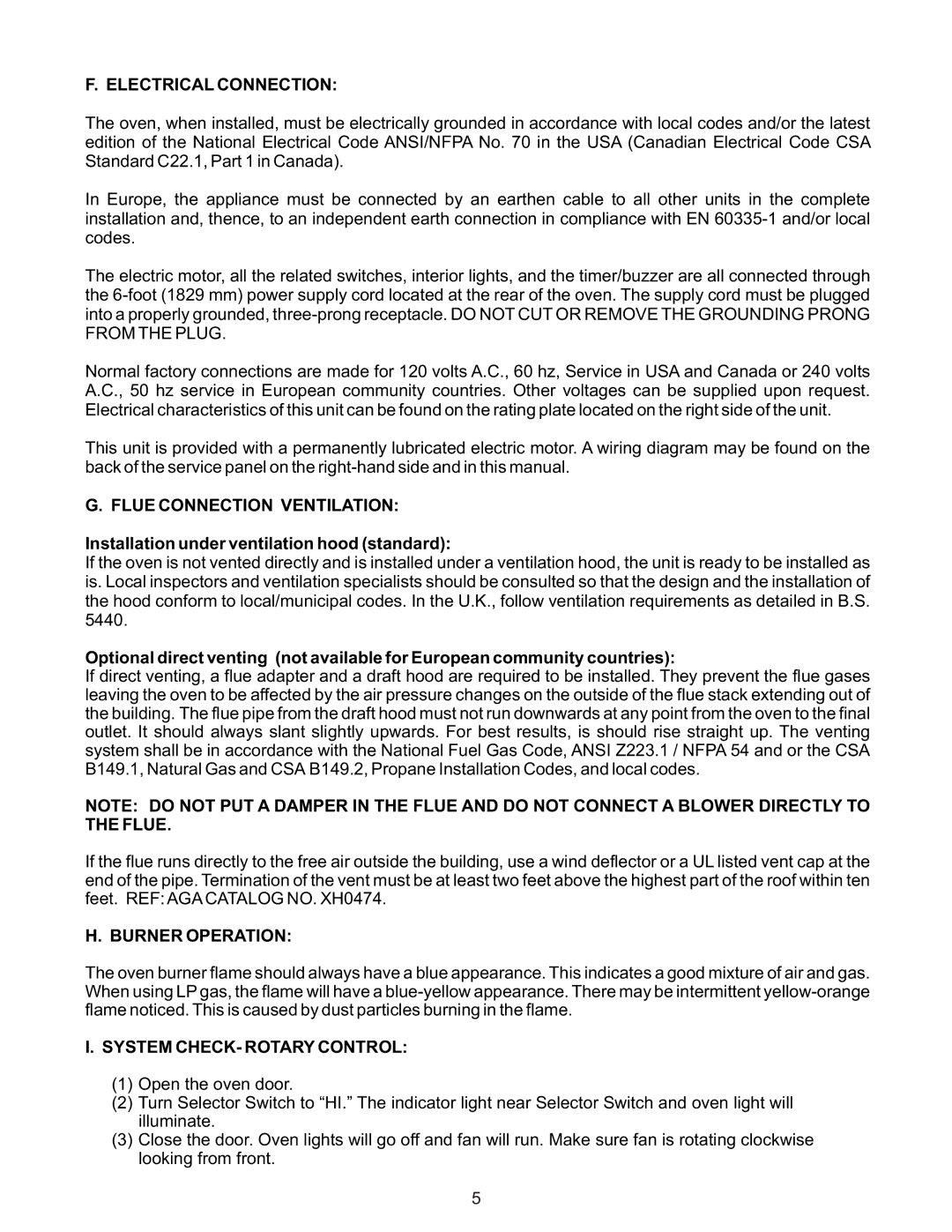GDCO-G, BCO-G specifications
The Bakers Pride Oven BCO-G and GDCO-G are renowned commercial baking ovens designed to meet the demands of professional kitchens. With a robust build quality and advanced features, these ovens have gained a reputation for reliability and consistent performance, making them a favorite among chefs and bakers alike.One of the standout features of both models is their precision temperature control, which allows users to set and maintain the desired cooking temperature with ease. The ovens are equipped with a powerful heating system that ensures rapid heat-up times and uniform cooking, resulting in perfectly baked goods every time. This is particularly crucial in high-volume baking scenarios where consistency is key.
The BCO-G oven is defined by its user-friendly design, complete with an easy-to-use control panel. This panel allows for intuitive operation, letting users set cooking times and temperatures accurately. The digital display provides clear readings, minimizing the chances of errors during busy hours. Meanwhile, the GDCO-G model takes this a step further with digital controls that include programmable recipes, enhancing efficiency and streamlining the cooking process.
These ovens also boast a durable stainless-steel construction, making them not only aesthetically pleasing but also highly resistant to wear and tear. This material is easy to clean, ensuring that maintenance is straightforward, which is vital in any bustling kitchen environment. Additionally, the interiors are designed for optimal airflow, promoting even baking without hot spots.
Another key feature is the inclusion of dual decks in the GDCO-G model, which allows for increased baking capacity without compromising space. This is particularly beneficial for establishments that need to bake a large volume of products simultaneously, ranging from bread and pastries to pizzas.
Safety is also a priority in the design of the BCO-G and GDCO-G ovens. Both models are equipped with features such as automatic shut-off and cool-touch doors, which help prevent accidental burns and enhance overall user safety.
In conclusion, the Bakers Pride Oven BCO-G and GDCO-G are top-tier choices for anyone in the commercial baking industry. Their combination of advanced technology, durability, and user-friendly design makes them essential tools for achieving exceptional results in any baking task. Whether you are a bakery, pizzeria, or restaurant, these ovens provide the performance and reliability you need to elevate your culinary creations.
